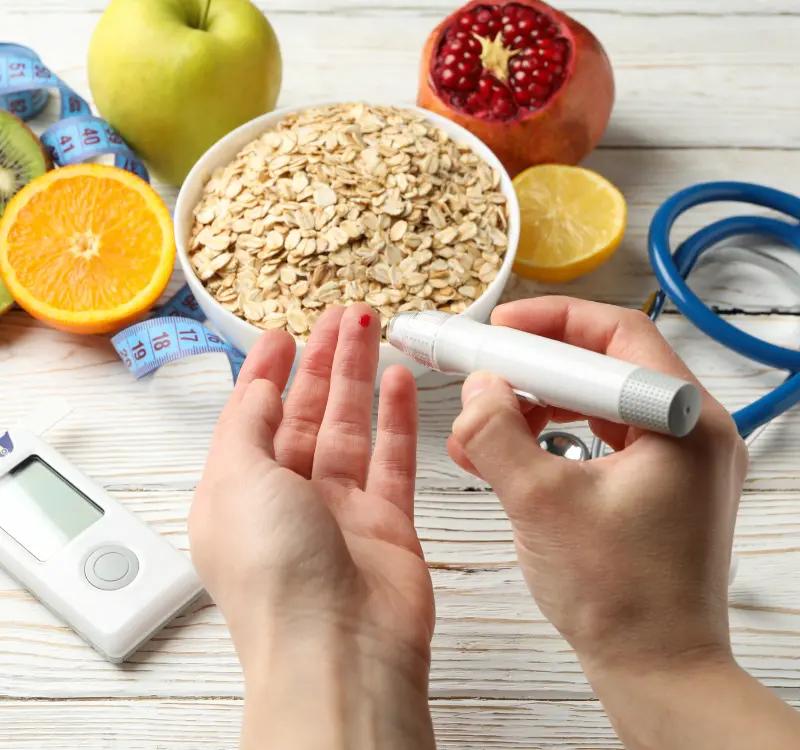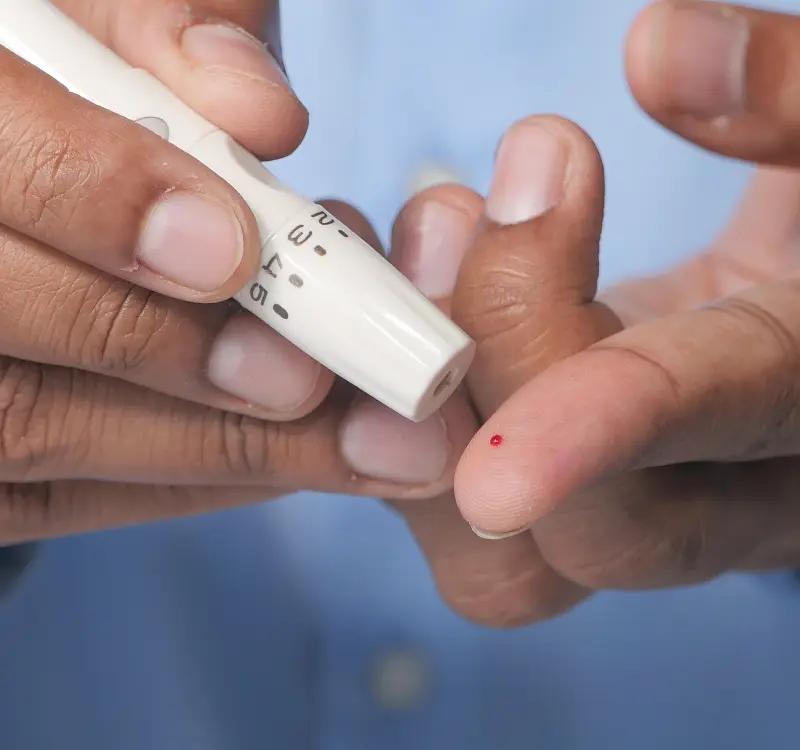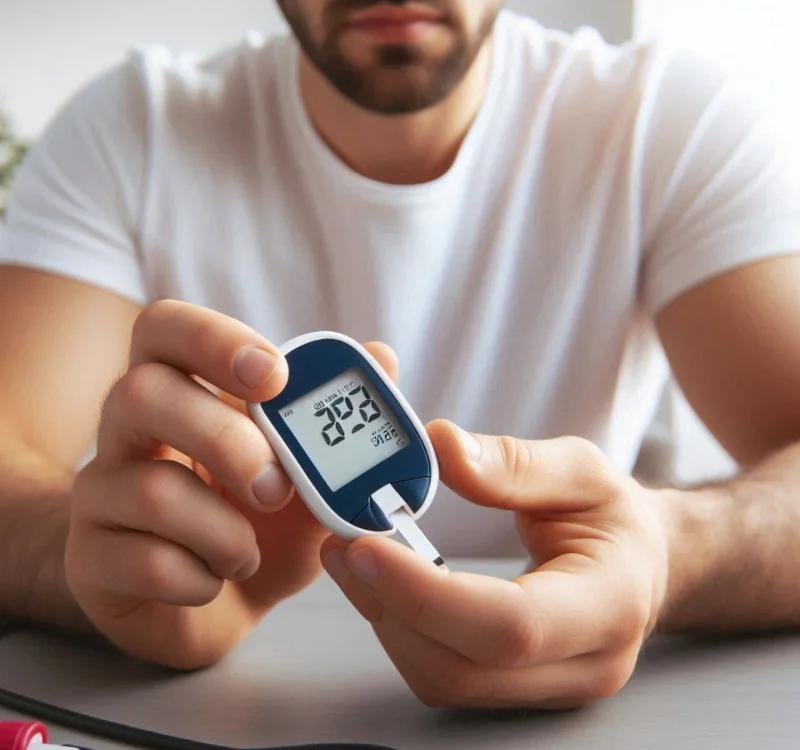All About Diabetes: A Complete Guide along with Symptoms, Causes and Prevention
Aug 23, 2024

Diabetes is a very common condition that occurs in many people around the world. It generally occurs due to an imbalance in blood sugar levels. There are various causes and reasons that can affect the fluctuations in overall insulin or blood sugar levels. To balance that, you can opt for several solutions, medicines, and remedies.
Table of Contents:
- What is diabetes?
- Symptoms of diabetes.
- Casual factors that can lead to diabetes.
- Precautiory measures for diabetes.
- Conclusion.
- FAQs.
What is diabetes?
Diabetes can be seen when your body's pancreas doesn't make enough insulin to manage the glucose levels in the body. It can affect people of any age but is most commonly seen middle aged people. Glucose or sugar mainly develops from carbohydrates that are consumed in the form of food and then later used as a source of energy.
The glucose in your body needs a hormone known as insulin to work efficiently. If your body's pancreas doesn't produce enough insulin, then the glucose levels in your body increase and cause high blood sugar levels. This is also known as diabetes insipidus or diabetes mellitus.
There are generally three types of diabetes:
- Type 1: This occurs as an autoimmune condition where the body destroys insulin-producing cells in the pancreas.
- Type 2: In Type 2 diabetes, the body doesn't use insulin properly, and the pancreas fails to produce the required amount of insulin needed in the body.
- Gestational diabetes: It mainly occurs during pregnancy and disappears after childbirth. But after this, it can increase the risk of getting Type 2 diabetes in both the mother as well as the newborn.
Symptoms of diabetes:
There are five main symptoms that you can consider in diabetes:
Frequent urination: This is the most common symptom among all the types of diabetes. This occurs because your body tries to eliminate excess sugar through the urine, leading to excessive urine production.
1. Thirst increases:
Frequent urination in diabetes can make you feel thirsty and cause dehydration, which makes you drink more water.
2. Fatigue and low energy:
When you notice glucose deficiencies in your body, you don't get the amount of glucose required, which makes you feel fatigued and weak, making your daily chores difficult and hard.
3. Blurred vision:
High blood sugar can also make your vision unclear and affect the fluid level in your eyes, making it difficult to see.
4. Weight loss:
You can notice unexpected weight loss in diabetes because without getting enough glucose in the cells, the body starts breaking down muscle and fat for energy, leading to excessive weight loss.
5. Skin degradation:
You can notice dark patches on your skin and can experience dry, pale skin. This condition is also called as acanthosis nigricans.
Casual factors that can lead to diabetes:
Diabetes is a chronic condition that occurs due to high blood sugar levels. There are mainly two types of diabetes: Type 1 and Type 2. Though both occur due to insufficient insulin production from the pancreas, they have different causes.
Type 1- generally occurs when the body's insulin-producing cells are attacked in the pancreas. It could also occur due to genetic vulnerability or viral infections. And, Type 2- diabetes occurs when the pancreas fails to produce enough insulin, along with other factors such as excessive weight and an unhealthy lifestyle.
There are other causes too, such as hormonal imbalance; for example, during pregnancy, the placenta releases hormones that can affect insulin, and women can develop gestational diabetes. Along with this, diabetes can occur when you have pancreatic damage or genetic mutations.
Precautiory measures for diabetes:
Diabetes can be prevented by maintaining some simple good health routines and by taking care of some precautionary measures, which are mentioned below:
1. Balanced diet:
You can add whole grains, fruits, and vegetables and avoid artificial sugar. Instead, you can switch to natural sugars, which will not only help you maintain good glucose levels but also provide you with energy in a healthy way.
2. Weight management:
You can maintain a healthy weight and include physical activity, which will help you burn fat and prevent excessive weight gain. Excessive weight gain can increase the risk of diabetes and affect blood sugar levels, along with causing other issues like high cholesterol.
3. Avoiding alcohol and tobacco:
Alcohol, tobacco, or smoking can increase the risk of diabetes along with other diseases, such as respiratory illnesses. Staying away from these habits will help you maintain your body in a healthy way.
4. Regular exercise:
Work out daily for at least 1 hour to keep your body active. You can also do cycling or walking to maintain good insulin levels and overall immune health.
5. Stress management:
Stress is a common cause of diabetes. You can start engaging in activities such as yoga and meditation to support your mental health along with your physical health. Chronic stress can increase the risk of diabetes in the body.
Conclusion
Diabetes is a chronic disease. There are several symptoms of diabetes, such as excessive urination, weight loss, and blurred vision. These are some signs that indicate diabetes complications in a person. Managing diabetes isn't that tough, but a few lifestyle changes can help. Eating a regular, balanced diet and doing regular workouts are key aspects that can help prevent Type 2 diabetes. You should also keep routine health checkups to monitor any fluctuations in your blood sugar levels. Early diabetes can be treated by making some lifestyle changes and adding a few foods that help manage insulin production in your body. Additionally, there are various strategies and healthcare awareness programs regarding diabetes, and everyone should be aware of them to take care of themselves and their loved ones.
Frequently Asked Questions
Lifestyle changes, medications, and regular blood sugar monitoring.
Fasting sugar levels should be between 70-99 mg/dl and After meals it should be less than: <140 mg+.
Eat balanced meals, exercise regularly, stay hydrated, and manage stress. This habitat can help you to reduce your blood sugar levels.
You can eat Leafy greens, nuts, avocado, and berries along with guava.
You should avoid eating junk such as sugary drinks, pastries, and candy.














